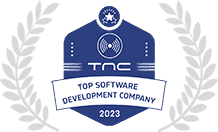NetSuite CRM is a cloud-based solution that integrates seamlessly with your organization’s ERP, ecommerce, and other business processes. What sets NetSuite CRM apart is its real-time access to a 360-degree view of customer data. This capability helps businesses effectively manage customer interactions, optimize sales processes, and improve customer service, leading to higher satisfaction and loyalty.
With its comprehensive tools for lead management, opportunity tracking, sales forecasting, marketing automation, and customer support, NetSuite CRM becomes an invaluable asset for businesses aiming to scale. Whether you’re a small startup or an established enterprise, leveraging NetSuite CRM can streamline your sales pipeline and improve overall operational efficiency.
How NetSuite CRM Boosts Sales Performance
Effective sales management is a cornerstone of business success. NetSuite CRM provides several tools that enable your sales team to close deals more efficiently. Its real-time data sharing, automation, and predictive analytics allow teams to focus more on building relationships rather than being bogged down with administrative tasks.
Sales Force Automation (SFA)
At the heart of NetSuite CRM is Sales Force Automation (SFA), which empowers your sales teams with tools to enhance their productivity. The SFA module automates mundane tasks such as lead capture, follow-ups, and forecasting. This allows sales representatives to focus on what really matters: nurturing leads and converting them into customers.
- Lead-to-Opportunity Management: Automatically capture leads and track them throughout the sales funnel. This eliminates the manual effort of updating records, ensuring no lead falls through the cracks.
- Sales Forecasting: With real-time visibility into pipeline stages, managers can make data-driven predictions and decisions.
- Quote and Order Management: Sales teams can quickly generate quotes, convert them into orders, and finalize deals—all within the NetSuite platform.
Table: Key Benefits of NetSuite SFA
| Feature | Benefit |
|---|---|
| Lead-to-Opportunity Management | Streamlines the process from lead capture to closing deals |
| Sales Forecasting | Enables accurate forecasting with real-time data |
| Quote and Order Management | Simplifies quote generation and deal finalization |
Enhancing Customer Relationships with NetSuite CRM
Customer relationships are at the core of any business’s long-term success. With NetSuite CRM, businesses can gain deep insights into their customers’ behaviors, preferences, and buying patterns, enabling them to deliver more personalized experiences and improve customer loyalty.
360-Degree View of Customers
The 360-degree customer view feature gives businesses a holistic understanding of each customer’s history. This visibility into past interactions, purchases, and preferences allows your customer service and sales teams to deliver tailored solutions. This approach enhances customer satisfaction and boosts retention.
NetSuite CRM also integrates customer support tools such as case management and knowledge bases, ensuring that any customer issues are resolved efficiently.
- Case Management: Track, escalate, and resolve customer inquiries or complaints efficiently through a single portal.
- Customer Support Automation: Use workflows to automate common support tasks like ticket generation, responses, and escalation.
- Self-Service Portals: Provide customers with access to their own account information, order history, and support resources, reducing the burden on your support team.
Marketing Automation with NetSuite CRM
A successful business requires an effective marketing strategy, and NetSuite CRM offers powerful marketing automation tools to support your efforts. These tools help manage campaigns, track customer engagement, and convert leads into paying customers.
Campaign Management
NetSuite CRM’s campaign management tools enable marketing teams to plan, execute, and analyze their marketing efforts all in one place. You can create targeted campaigns that reach the right audience at the right time. By utilizing data from past customer interactions, you can build more personalized marketing campaigns that are likely to resonate with your audience.
- Email Marketing: Create personalized, automated email campaigns based on customer behavior, lead stage, or other criteria.
- Lead Nurturing: Use lead scoring and nurturing techniques to ensure that leads are engaged with the right content at the right time.
- Multi-Channel Campaigns: Manage campaigns across multiple channels, including email, social media, and direct mail, all within the NetSuite platform.
Table: Marketing Automation Features of NetSuite CRM
| Feature | Benefit |
|---|---|
| Campaign Management | Organize, track, and optimize campaigns from one dashboard |
| Email Marketing | Automate personalized emails based on customer actions |
| Lead Nurturing | Score and nurture leads until they’re sales-ready |
| Multi-Channel Campaigns | Execute cross-channel campaigns seamlessly |
Sales and Marketing Alignment
Alignment between sales and marketing teams is crucial for driving revenue growth. NetSuite CRM facilitates this alignment by providing both teams with real-time access to the same customer data. This shared visibility ensures that marketing efforts are focused on delivering qualified leads to the sales team and that sales reps are well-equipped to close those leads.
NetSuite CRM allows marketing to track the effectiveness of their campaigns, while sales can provide feedback on the quality of leads. This collaborative environment fosters transparency and accountability across both departments, ultimately leading to better business outcomes.
- Shared Customer Data: Both teams can access the same information, reducing miscommunication and data silos.
- Lead Scoring: Marketing can assign scores to leads based on predefined criteria, ensuring that sales only engage with the most qualified prospects.
- Closed-Loop Reporting: Marketing can track the success of their campaigns in driving revenue, while sales can offer insights into the effectiveness of lead generation efforts.
Integrating NetSuite CRM with ERP
One of the unique strengths of NetSuite CRM is its seamless integration with NetSuite’s ERP (Enterprise Resource Planning) system. This integration gives businesses a single platform to manage both front-end (customer-facing) and back-end operations.
How Integration Boosts Efficiency
When your CRM is integrated with ERP, you gain real-time visibility into inventory, financials, order management, and more. This visibility helps your sales team close deals faster by providing them with up-to-date information about product availability, pricing, and shipping timelines.
- Order Management: Sales reps can view real-time inventory levels and create accurate quotes based on product availability.
- Financial Data: Get insights into each customer’s payment history, outstanding invoices, and credit status before finalizing a deal.
- Inventory Management: Sales and customer support teams can access inventory data to avoid selling out-of-stock products or overpromising on delivery times.
By integrating NetSuite CRM and ERP, businesses can automate workflows, reduce data entry errors, and streamline operations across departments.
Table: Benefits of NetSuite CRM-ERP Integration
| Feature | Benefit |
|---|---|
| Order Management | Sales reps can view real-time product availability |
| Financial Data | Access customer financial history for better decision-making |
| Inventory Management | Ensure accurate inventory data is available for all departments |
Reporting and Analytics in NetSuite CRM
The ability to measure success and optimize processes is essential for business growth. NetSuite CRM’s robust reporting and analytics features offer a clear, data-driven view of your business performance. Whether it’s tracking sales performance, marketing campaign success, or customer support effectiveness, NetSuite CRM provides actionable insights that help businesses make informed decisions.
Customizable Dashboards
NetSuite CRM offers customizable dashboards that provide real-time data on key metrics. Sales managers, marketing teams, and executives can tailor these dashboards to focus on the most relevant KPIs.
- Sales Dashboards: Track lead conversion rates, pipeline velocity, and revenue generation.
- Marketing Dashboards: Monitor the performance of marketing campaigns, email open rates, and customer engagement.
- Support Dashboards: Gain visibility into case resolution times, customer satisfaction scores, and overall support effectiveness.
By visualizing data in real time, NetSuite CRM allows you to make strategic adjustments quickly, improving overall efficiency and productivity.
Scalability and Customization of NetSuite CRM
As businesses grow, their needs evolve. One of the key advantages of NetSuite CRM is its scalability and ability to grow with your business. Whether you’re expanding your sales team, entering new markets, or launching new products, NetSuite CRM can be tailored to meet your changing requirements.
Custom Workflows
NetSuite CRM offers custom workflows that allow businesses to automate repetitive tasks. You can create specific workflows that suit your sales, marketing, or customer support processes, improving efficiency and reducing manual effort.
- Lead Assignment Rules: Automatically route leads to the appropriate sales reps based on criteria like geography, industry, or deal size.
- Custom Approval Workflows: Set up automated approval processes for large deals or special pricing requests, ensuring compliance with internal policies.
Scalability
Whether you have 10 customers or 10,000, NetSuite CRM scales to accommodate your growing business. You can easily add new users, customize permissions, and adjust system settings without the need for expensive infrastructure upgrades.
Table: Customization Features in NetSuite CRM
| Feature | Benefit |
|---|---|
| Custom Workflows | Automate repetitive tasks to improve efficiency |
| Lead Assignment Rules | Automatically assign leads based on criteria |
| Custom Approval Workflows | Streamline approval processes for large deals |
FAQs About NetSuite CRM
- What is NetSuite CRM?
NetSuite CRM is a cloud-based Customer Relationship Management system that helps businesses manage their customer interactions, sales processes, and marketing efforts. - How does NetSuite CRM integrate with ERP?
NetSuite CRM integrates seamlessly with NetSuite ERP, allowing for real-time visibility into financials, inventory, and order management. - What is Sales Force Automation (SFA) in NetSuite CRM?
SFA automates lead capture, opportunity management, sales forecasting, and other sales tasks, helping sales teams be more efficient. - Can NetSuite CRM be customized?
Yes, NetSuite CRM offers extensive customization options, including custom workflows, lead assignment rules, and approval processes. - Does NetSuite CRM support marketing automation?
Yes, NetSuite CRM has built-in marketing automation tools that support email marketing, lead nurturing, and multi-channel campaigns. - Is NetSuite CRM cloud-based?
Yes, NetSuite CRM is fully cloud-based, allowing access from anywhere with an internet connection. - Can NetSuite CRM scale with my business?
Absolutely. NetSuite CRM is designed to grow with your business, whether you’re a small startup or a large enterprise. - What industries use NetSuite CRM?
NetSuite CRM is used across various industries, including retail, manufacturing, professional services, and healthcare. - Does NetSuite CRM offer reporting and analytics?
Yes, NetSuite CRM provides robust reporting and analytics tools that offer real-time insights into sales, marketing, and customer support performance. - How does NetSuite CRM help with sales forecasting?
NetSuite CRM uses real-time data to create accurate sales forecasts, helping businesses predict future revenue and adjust strategies accordingly. - What is the 360-degree customer view in NetSuite CRM?
The 360-degree customer view provides a comprehensive look at each customer’s interactions, purchase history, and preferences. - Can I automate customer support with NetSuite CRM?
Yes, NetSuite CRM includes case management and customer support automation tools to help resolve customer issues efficiently. - What is lead scoring in NetSuite CRM?
Lead scoring helps prioritize leads based on their likelihood to convert, ensuring that sales teams focus on the most qualified opportunities. - Does NetSuite CRM support multi-channel marketing campaigns?
Yes, NetSuite CRM allows businesses to manage marketing campaigns across email, social media, direct mail, and more. - How does NetSuite CRM help align sales and marketing teams?
NetSuite CRM provides both teams with access to the same customer data, ensuring better communication, lead scoring, and closed-loop reporting. - What is the benefit of integrating CRM with ERP?
Integrating CRM with ERP streamlines operations by providing real-time visibility into inventory, financials, and order management, helping sales teams close deals faster. - Can I customize reports in NetSuite CRM?
Yes, NetSuite CRM offers customizable dashboards and reports, allowing you to track the metrics that matter most to your business. - What is the case management feature in NetSuite CRM?
Case management helps track, escalate, and resolve customer inquiries or complaints efficiently. - How secure is NetSuite CRM?
NetSuite CRM uses advanced security protocols to protect customer data, including encryption and access controls. - Is there a mobile app for NetSuite CRM?
Yes, NetSuite offers a mobile app, enabling your team to manage customer relationships and sales on the go.
By harnessing the full power of NetSuite CRM, businesses can streamline their sales processes, strengthen customer relationships, and drive sustained growth. With its seamless ERP integration, comprehensive marketing automation tools, and robust reporting capabilities, NetSuite CRM proves to be a powerful asset for businesses of all sizes and industries.
- How to Optimize Inventory Management with NetSuite - October 4, 2024
- Best Practices for Customizing NetSuite to Meet Business Needs - October 4, 2024
- How to Successfully Migrate Your Business Data to NetSuite - October 4, 2024




















